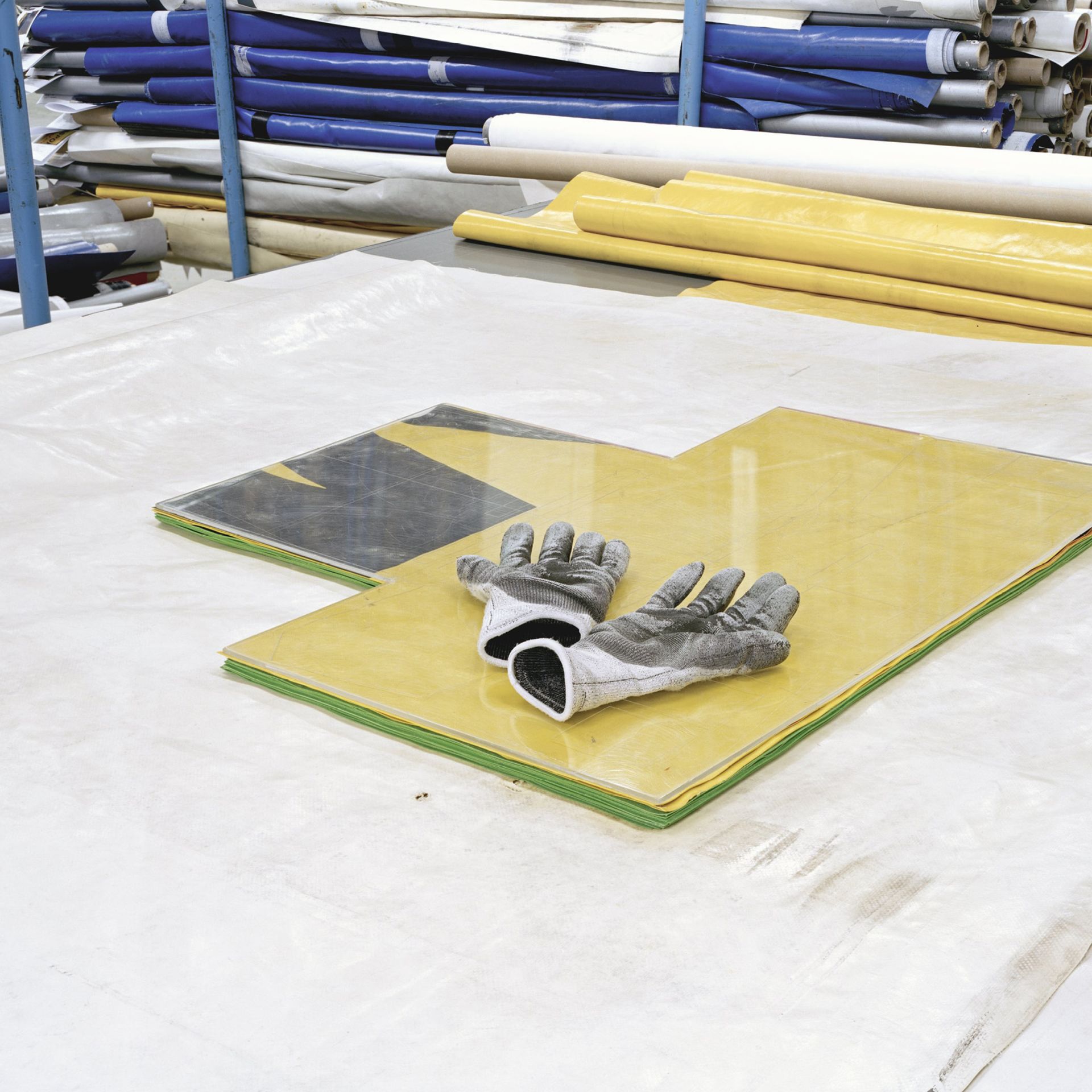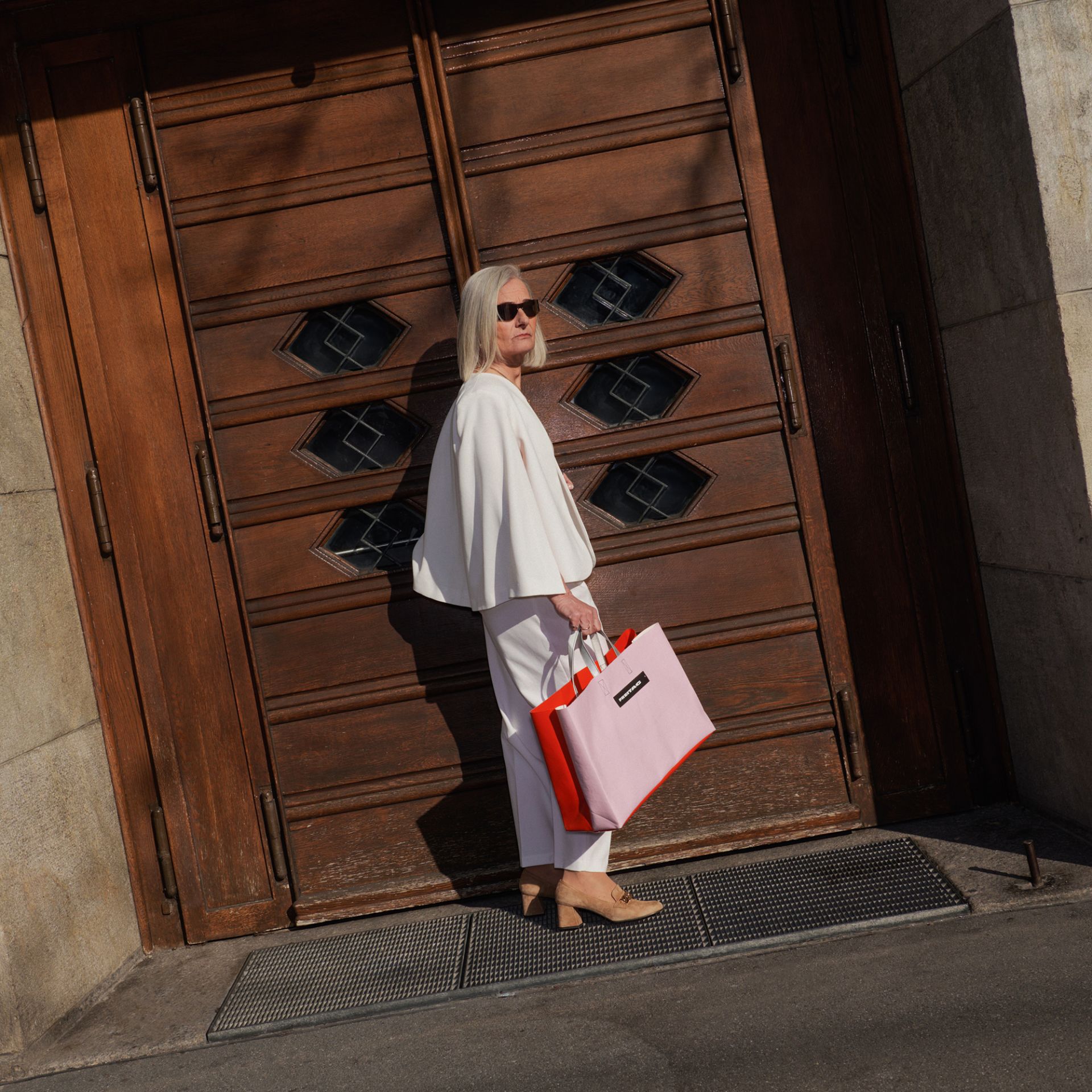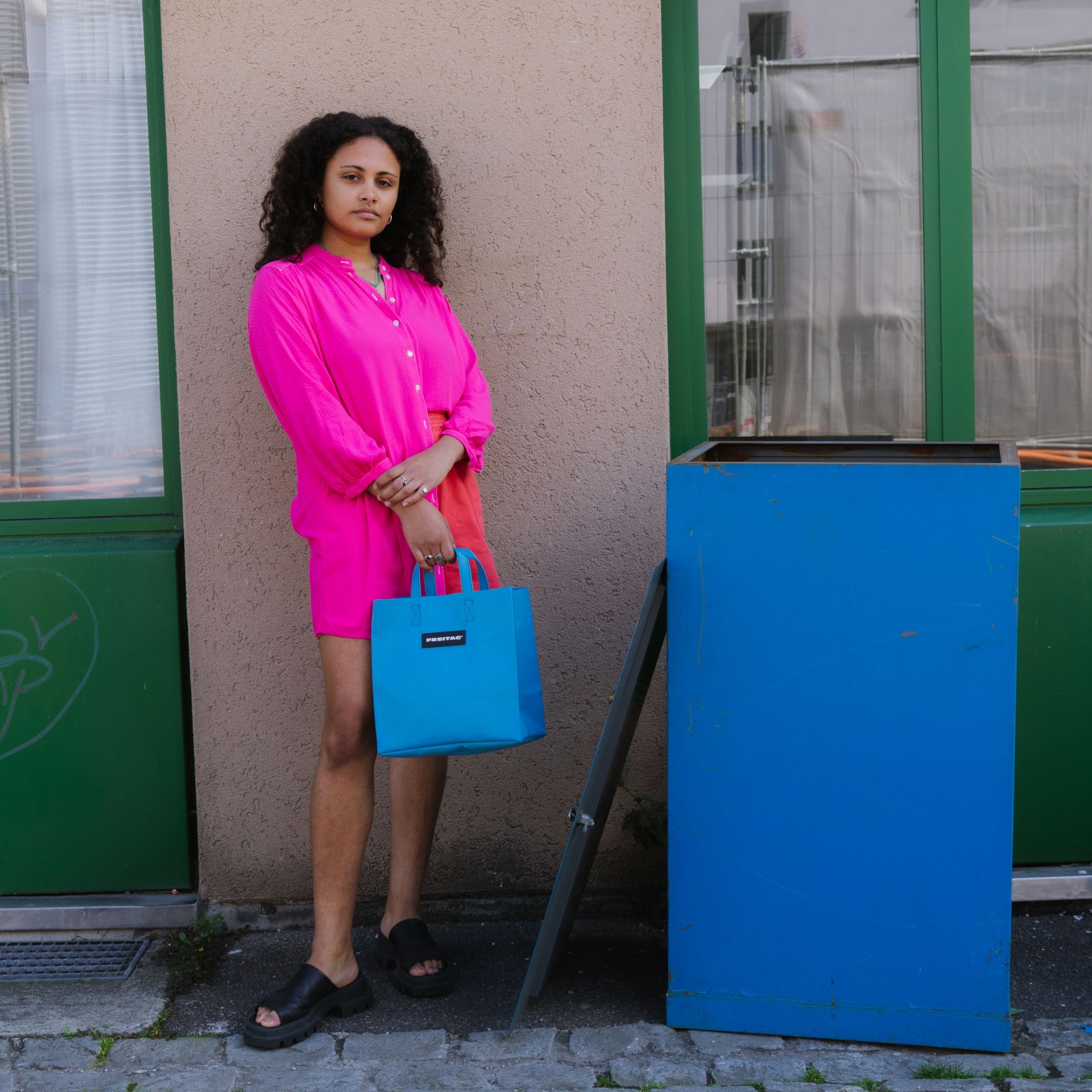In their first lives, our products were truck tarps consisting of polyester fabric and PVC (polyvinyl chloride). Our recycling approach is about extending the life of this incredibly robust, water-repellent material. And we do that by giving it nothing less than a new, second one.
After tarps have spent about six years on the road, their hard-wearing qualities sometimes allow them to be used as bags for much longer than that. (By comparison, about 40% of all plastic products end up in the trash after less than a month).
When your unique tarp ever breaks, we can repair it for you. And if, in the distant future, it’s no longer your favorite bag, you can swap it with someone from the F-Community on our S.W.A.P. – Shopping Without Any Payment – bag exchange platform.
You can probably guess what we're getting at: Keeping material in circulation for as long as possible makes it sustainable. And that even applies to a petroleum-based material like PVC.













